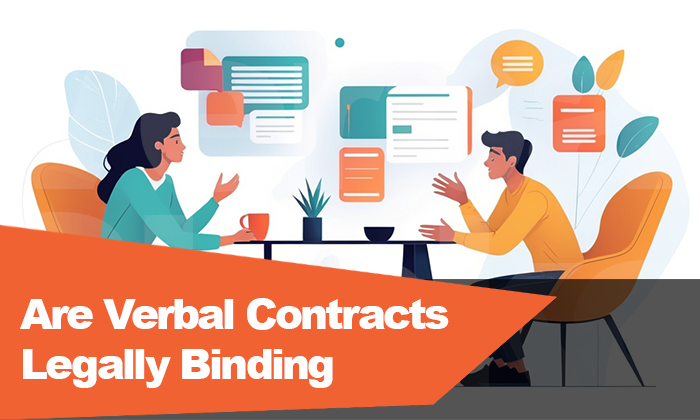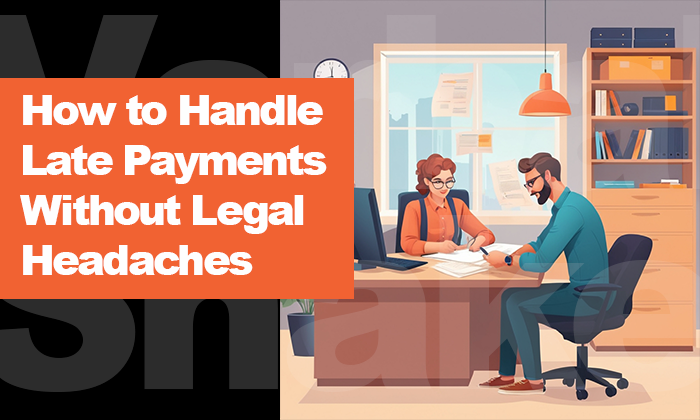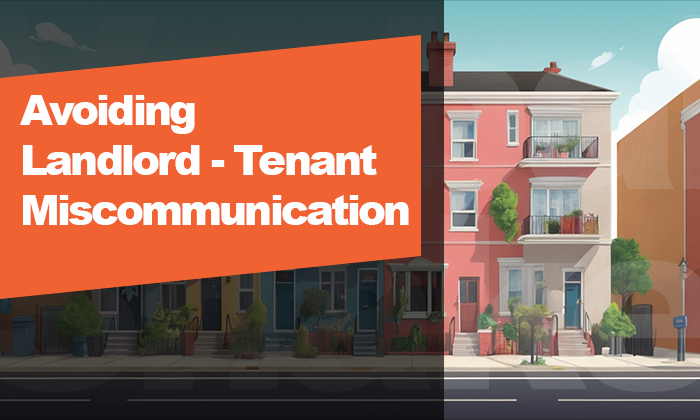Are Verbal Contracts Legally Binding? Pros, Cons, and Legal Risks

The Risky Business of Verbal Agreements
Verbal agreements are quick, convenient, and often made with good intentions. But when it comes to legal enforceability, they can get messy—fast.
Whether you're a landlord, property manager, or contractor, it's tempting to seal a deal with a handshake or a verbal promise. After all, it's fast, easy, and feels personal. But what happens if things go south? Can you really enforce a verbal agreement in court?
Short answer: Sometimes. But if you ever have to prove one, good luck.
In this post, we'll break down:
- When verbal agreements can hold up in court
- Why they often fall apart
- How to protect yourself and your business
- A simple solution to make verbal agreements crystal clear
When Verbal Agreements Might Hold Up in Court
Disclaimer: This article is for informational purposes only and does not constitute legal advice. Verbal Shake is not a law firm, and the content provided should not be considered a substitute for professional legal counsel. Legal requirements for verbal agreements vary by state and jurisdiction. We strongly recommend consulting with a qualified attorney to ensure compliance with local laws and to receive advice tailored to your specific situation.
Verbal agreements can be legally binding, but there are certain conditions that need to be met for them to be enforceable. Here are the key situations when a verbal agreement might hold up in court:
1. Both Parties Acted on It
If both parties have clearly acted in accordance with the verbal agreement, the court may see this as proof of the contract.
Example:
- A tenant verbally agrees to pay rent every month, and the landlord accepts it. The tenant consistently pays rent on time. In this case, the court might enforce the verbal agreement because both parties acted on the terms.
Why It Works:
- The behavior of both parties supports the existence of an agreement.
- This is known as “part performance” and can serve as evidence of the contract.
2. There’s a Written Trail
While the agreement itself wasn’t written, there might be written evidence supporting it, like:
- Emails or Texts that reference the terms of the agreement.
- Handwritten notes from a meeting where the terms were discussed.
Example:
- A contractor agrees to repair a rental property for a set price. They send a text confirming the price and timeline, and the landlord responds with “Sounds good!” This written trail can be presented as evidence in court.
Why It Works:
- Written communication shows intent and acknowledgment of the agreement.
- Courts often accept emails or texts as proof of the contract’s existence.
3. Money Changed Hands
One of the strongest pieces of evidence for a verbal agreement is proof that money was exchanged based on the terms discussed.
Example:
- A landlord verbally agrees to let a tenant pay rent in two installments. The tenant follows through, and payment records show the agreed-upon amounts on the agreed dates.
Why It Works:
- Financial transactions provide tangible proof that an agreement was made.
- Payment records are considered strong evidence in contract disputes.
When Verbal Agreements Fall Apart
While verbal agreements can hold up under the right conditions, they often fall apart due to the following reasons:
1. No Written Proof = Your Word vs. Theirs
If there’s no written proof, it becomes a case of “he said, she said.” This can lead to:
- Conflicting stories where each party remembers the terms differently.
- Memory Loss or Misinterpretation – People naturally forget details or misinterpret spoken words over time.
Example:
- A landlord claims they verbally agreed to waive a late fee as a one-time courtesy, but the tenant insists the waiver was permanent. With no written proof, it’s just one person’s word against the other’s.
Why It Fails:
- Courts prioritize written evidence over oral testimony.
- Witness credibility becomes a factor, which is subjective and unreliable.
2. People “Remember” Things Differently
The human brain is prone to bias and selective memory, especially in emotionally charged situations like disputes. This leads to:
- Misunderstandings or Misinterpretations – One party might have genuinely misunderstood the agreement.
- Convenient Memory – People sometimes “remember” terms in a way that benefits them.
Example:
- A tenant claims the landlord verbally agreed to allow pets, but the landlord remembers only discussing the possibility. Without documentation, it’s hard to prove who’s right.
Why It Fails:
- Lack of clarity leads to confusion and conflicting interpretations.
- Courts prefer clear, written terms over ambiguous verbal agreements.
3. Some Agreements Must Be in Writing
Certain types of agreements must be in writing to be legally enforceable under the Statute of Frauds. This includes:
- Real Estate Leases Over 12 Months – In most states, leases longer than a year must be documented.
- Property Sales – Agreements related to the sale or transfer of real estate.
- Contracts Involving Large Sums of Money – Some states require written contracts for transactions over a certain dollar amount.
Example:
- A landlord verbally agrees to rent a property for two years, but the tenant stops paying after six months. In most states, the verbal lease is not enforceable because leases over one year must be in writing.
Why It Fails:
- Legal requirements for certain contracts can’t be bypassed with verbal agreements.
- Courts will automatically dismiss claims related to these contracts if they’re not documented.
How to Protect Yourself from Verbal Agreement Disputes
1. Always Get It in Writing
- Even a quick text or email confirming the terms is better than nothing.
- Consider writing a summary of the agreement and asking the other party to confirm it via text or email.
2. Be Specific and Detailed
- Vague terms are a recipe for disputes. Instead of saying, “You can pay later,” be specific:
- “For this one-time exception, rent is due by the 15th. Late fees apply after that.”
3. Use Verbal Shake for Crystal Clear Agreements
- With Verbal Shake, you can convert verbal agreements into written commitments quickly and easily.
- AI-Powered Speech-to-Text captures the agreement in real-time, so there are no more “I thought you said…” moments.
- Legally binding digital signatures make your agreements enforceable.
Bottom Line: Is a Verbal Agreement Worth the Risk?
Verbal agreements can hold up in court, but they come with unnecessary risks.
- Memory fades, details get lost, and misunderstandings happen.
- If it matters enough to argue about, it matters enough to put it in writing.
With Verbal Shake, you can turn conversations into commitments without the ambiguity or legal risks of verbal agreements.
Don’t leave your agreements to chance.
Try Verbal Shake today and make every agreement clear, enforceable, and legally binding.



